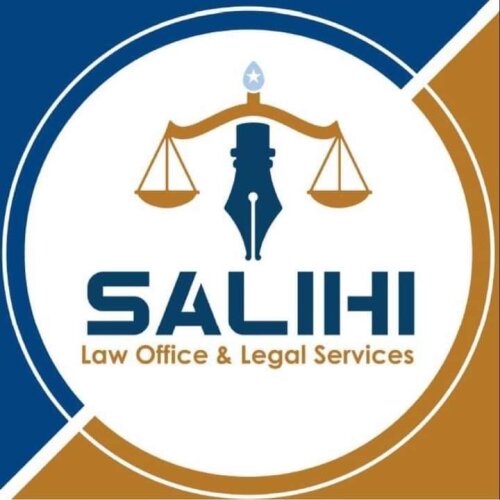About International Law in Mogadishu, Somalia
International law in Mogadishu, Somalia, is a complex field influenced by the country's legal pluralism, which combines Somali customary law, Sharia law, and formal statutory law. Given Somalia's strategic location on the Horn of Africa, international law plays a crucial role in addressing issues related to maritime boundaries, piracy, international trade, human rights, and refugees. The legal environment in Somalia is continually evolving due to regional and international peace and security efforts. Understanding the nuances of international law in this context requires navigating both national legal frameworks and global legal standards.
Why You May Need a Lawyer
Individuals and businesses may require legal assistance in international matters for a variety of reasons. Key situations include navigating cross-border transactions, dealing with disputes that involve an international element, seeking asylum or refugee status, addressing human rights abuses, and compliance with international trade regulations. Businesses operating in Mogadishu may also need advice on international contracts and agreements, as well as legal issues related to shipping and logistics. Having a lawyer who understands both local and international law can be critical to successfully resolving such issues.
Local Laws Overview
Somalia's legal system is characterized by a mixture of customary law (known as Xeer), Sharia law, and formal statutory law. While customary law is traditionally used for local, clan-related disputes, Sharia law is often applied in personal status and family matters. The formal statutory system, which is gradually being strengthened with international assistance, provides the legal framework for other aspects of law, including commercial and criminal law. Knowledge of these local legal frameworks is essential when dealing with international legal issues in Mogadishu, particularly in matters of jurisdiction, as multiple legal systems can apply.
Frequently Asked Questions
What is the role of international law in Mogadishu?
International law is vital for addressing issues that extend beyond national borders, such as international disputes, human rights, and trade agreements. It provides a framework for cooperation and conflict resolution between Somalia and other countries.
How do I find a lawyer experienced in international law in Mogadishu?
Look for legal practitioners who specialize in international law and have experience with Somalia's legal system. Professional associations or legal aid organizations in Mogadishu can provide referrals.
What legal frameworks govern business operations in Mogadishu?
Business operations are governed by a mix of statutory laws, including the Commercial Code, and international trade regulations. Legal guidance is essential to ensure compliance.
How are maritime disputes handled in Somalia?
Maritime disputes are addressed under both national legal frameworks and international maritime law. Due to regional piracy concerns, specialized knowledge in maritime security and law is crucial.
Are there specific international conventions Somalia adheres to?
Yes, Somalia is a party to various international conventions, notably those related to human rights, trade, and maritime law. Understanding these commitments is vital for legal proceedings.
What should I do if my international rights are violated in Mogadishu?
Seek immediate legal advice from a qualified practitioner. Your lawyer can guide you on legal recourse available both locally and internationally.
Can international law resolve clan-related conflicts?
While international law provides mechanisms for dispute resolution, clan-related conflicts are primarily settled under Somali customary law. However, international frameworks can offer support in peace-building efforts.
How does international law address human rights issues in Somalia?
International human rights law offers a framework for addressing violations. NGOs and international bodies often collaborate with local authorities to improve rights protection in Somalia.
Is arbitration available for international disputes in Somalia?
International arbitration is an available mechanism for resolving cross-border disputes, especially in commercial matters, where parties seek a neutral venue for adjudication.
What are the challenges of applying international law in Mogadishu?
Challenges include legal pluralism, political instability, and limited enforcement capacities. Despite these hurdles, international law remains a critical tool for addressing complex legal issues.
Additional Resources
For additional support, individuals can reach out to organizations such as the Somali Bar Association, international legal aid groups, and embassies offering consular services. The United Nations Assistance Mission in Somalia (UNSOM) also provides resources and guidance on international law matters, as do various NGOs working in the region to strengthen legal frameworks and human rights protections.
Next Steps
If you require legal assistance in international matters in Mogadishu, start by consulting with a lawyer experienced in both local and international law. Verify their credentials and areas of expertise, and be prepared to discuss the specifics of your case. You may also contact local legal aid organizations for support, particularly if financial resources are a concern. Ensuring you have knowledgeable legal representation can make a significant difference in effectively addressing international legal issues.
Lawzana helps you find the best lawyers and law firms in Mogadishu through a curated and pre-screened list of qualified legal professionals. Our platform offers rankings and detailed profiles of attorneys and law firms, allowing you to compare based on practice areas, including International, experience, and client feedback.
Each profile includes a description of the firm's areas of practice, client reviews, team members and partners, year of establishment, spoken languages, office locations, contact information, social media presence, and any published articles or resources. Most firms on our platform speak English and are experienced in both local and international legal matters.
Get a quote from top-rated law firms in Mogadishu, Somalia — quickly, securely, and without unnecessary hassle.
Disclaimer:
The information provided on this page is for general informational purposes only and does not constitute legal advice. While we strive to ensure the accuracy and relevance of the content, legal information may change over time, and interpretations of the law can vary. You should always consult with a qualified legal professional for advice specific to your situation.
We disclaim all liability for actions taken or not taken based on the content of this page. If you believe any information is incorrect or outdated, please contact us, and we will review and update it where appropriate.










